Ever since the dawn of civilization, the ancient law-givers in India, who were thoughtful people of their times, laid down regimes on the do’s and don’ts for people in order that they might attain to the fullness of human stature, which is spirituality. And those charters were made on the basis of Vedic teachings. As per the changes that took place in the society from time to time, various law-givers wrote a new charter for a new type of society. In Swami Vivekananda’s opinion, ‘When the needs of the times press hard on it, society adopts certain customs for selfpreservation. Rishis have only recorded those customs.’1 But in the long run the various rules framed by the society as an immediate remedy to the then existing problems turn out to be terrible when crystallized into dead customs. These are the outcomes of those temporary means which were resorted to by individuals for self-protection and which proved later to be very harmful. Thus it is that we have a series of Smriti sastras authored by sages starting from Manu down to Raghunandana from Bengal.
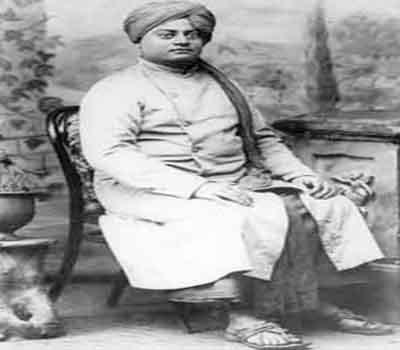
In India, as we know, everything down the ages was built on the firm bed-rock of spirituality. Nothing unspiritual could stand in the way of the Hindu progressive mind. For example, the Hindus do not consider a child materially born to be an Aryan (truly cultured person). In Swami Vivekananda’s language, ‘What is an Aryan? He is a man whose birth is through religion. …The idea is that a man must be born through religion, through prayers.’2 Not only so, but Swamiji went one step further in depicting a clearer picture of the Hindus: ‘In this country men are born according to Shastric injunctions, they eat and drink by prescribed rules throughout life, they go through marriage and kindred functions in the same way; they even die according to Shastric injunctions.’3
Great men were born in India to fix the patterns of human life in different eras. These were codified and the books they authored are named Smriti sastras. However, the main purpose involved in these codes of law is to go higher and higher gradually until, to use Swami Vivekananda’s witty remarks, ‘one becomes an “outlaw”, that is, go beyond laws and become spiritual.’4 Jokes apart, he also said in another context, ‘No doubt it is an evil to be bound by laws, but it is necessary at the immature stage to be guided by rules.’5
In view of the restlessness of mind among the modern children, the wayward and unbridled freedom in matters of physical and mental enjoyment leading to unnatural, immature deaths, the unrest in married life due to selfish endeavours, and above all, the blind imitation of the materialist nations leading to the downfall of our national dignity, it is high time to remind our people of their true stature, and frame some rules to abide by at all costs and in high spirits. Swami Vivekananda, the nara rishi for this modern age, looked into the state of affairs in the modern society and like a path-finder he has helped us take a retrospect view of our glorious past lives and apply the necessary corrective measures ourselves in the modern age, so as to rebuild our lives towards a new goal. In doing this he has followed our ancient sages Manu and authors of other Smritis, as also many other injunctions from scriptures like Maha Nirvana Tantra, Srimad Bhagavatam, and Bhagavad Gita. Above all, he wanted that the most wonderful truths confined in our Upanishads, scriptures, and Puranas must be brought out from the books, the monasteries, and the forests, or from the possession of selected bodies of people, and scattered broadcast all over the land.6 At the same time, wherever he found it necessary, he made a number of amendments for the people of the modern era. We will discuss them separately in this article.
Rules for householders
According to the Hindu system of law, there are four ashramas or stages of life, namely, Brahmacharya or the student life, Garhasthya or the householders’ life, Vanaprastha or the recluse life, and Sannyasa or a life of total renunciation. Sage Manu enjoined that among all the four ashramas the garhasthya ashrama is the sustainer and supporter of the other three. He said, ‘As all creatures draw their sustenance from air, likewise the people belonging to the other three stages of life depend on the householder.’7 In contrast, in this modern workaday world it becomes impractical to maintain all the norms laid down by Manu as the life pattern of the society has deviated widely from the olden times. So, Swami Vivekananda guided the householders of modern times in the path of work. He said mentioning our old rules, ‘There are five sorts of work, called the fivefold sacrifice. First, study. A man must study every day something holy and good. Second, worship of God, angels, or saints, as it may be. Third, our duty to our forefathers. Fourth, our duty to human beings. Man has no right to live in a house himself, until he builds for the poor also, or for anybody who needs it. The householder’s house should be open to everybody that is poor and suffering; then he is a real householder. No man has the right to cook food only for himself; it is for others, and he should have what remains. When the season’s produce first comes into the market, such as strawberries or mangoes, a man buys some of them and gives to the poor. Then he eats of them. This training will make a man unselfish. Fifth, our duty to the lower animals. It is diabolical to say that all animals are created for men to be killed and used in any way man likes. One portion of the food cooked in a household belongs to the animals also. They should be given food every day; there ought to be hospitals in every city in this country for poor, lame, or blind horses, cows, dogs, and cats, where they should be fed and taken care of.’8 In another injunction he says, ‘The rule for a householder about the expenditure of his income is, one-fourth of the income for his family, one-fourth for charity, one-fourth to be saved, one-fourth for self.’9
Rules for women
Women are the pillars of the family as also the society. Swamiji said, ‘The best thermometer to the progress of a nation is its treatment of its women. The idea of perfect womanhood is perfect independence.’10 But what did he mean by ‘perfect independence’ here? Did he mean complete licence to act as she pleases? Far from that. Besides, among the modern women a fad has crept in—to be ‘trendy’ to use the exact term. That bares open the growing tendency to skip boldly everything ancient and blindly imitate celebrities. They feel the society would otherwise ostracize them. To clarify the meaning of perfect independence Swamiji declared, ‘Any kind of education which undermines the faith of the Indian woman in the past culture of her race, its religion and traditions, is not only useless but detrimental.’11 He went one step further, ‘Any attempt to modernize our women, if it tries to take our women away from that ideal of Sita, is immediately a failure, as we see every day. The women of India must grow and develop in the footprints of Sita.’12 And to accentuate his proposition, Swamiji made a climactic comment, ‘If a woman who learns to read uses the knowledge only for imbibing vulgar, frivolous, sensational stories, she had better be left illiterate.’13
Any kind of education which
undermines the faith of the
Indian woman in the past
culture of her race, its religion
and traditions, is not only useless
but detrimental
What were Swamiji’s plans about women’s education? He said, that they ‘must receive Sanskrit education, imbibe the ancient spiritual culture, and realise in practice all the spiritual ideals of the Rishis; and then they would take into their hands all questions affecting their status and solve them in the light thrown on them by their knowledge of the truths of religion.’14 What all did he prescribe as education or training in the other fields? He showed the way: ‘Religion, arts, science, housekeeping, cooking, sewing, hygiene—the simple essential points in these subjects ought to be taught to our women. Teaching only rites of worship won’t do; their education must be an eye-opener in all matters. Ideal characters must always be presented before the girls to imbue them with a devotion to lofty principles of selflessness.’15 The Indian women in general, especially from conservative families, evince a sort of pessimistic attitude in matters of progress. Theirs is an attitude of fear of public calumny and superstitions based on hearsay. Swamiji observed this, and to remove that inordinate fear from their mind he drew a comparison with the attitude of American women which had made them progress so much within just a decade of woman suffrage. He wrote to this effect: ‘The American women broaden out in sympathy with everything that is good everywhere without losing a bit of their own religion. They intuitively know that it is a question of positivity and not negativity, a question of addition and not subtraction. It is the affirmative and positive side of everything that shall be stored up, and this very act of accumulating the affirmative and positive is what destroys the negative and destructive elements in the world.’16 In fact there is no alternative left with the women unless they take such affirmative and positive attitude and make it the mainstream of their life. Swamiji proceeded to point it out sharply to them. He said, ‘The women must go forward or become idiots and soulless tools in the hands of their tyrannical lords. The children are the result of the combination of the tyrant and the idiot, and they are slaves. And this is the whole history of modern India.’17 Again and again, Swamiji went on eulogizing the women of our motherland telling that they are the dynamo of dormant powers. He even pointed to the unrestrained behaviour found in modern or even postmodern women, saying that it was but the vengeance of nature: ‘Every woman is part of the Divine Mother, the embodiment of Shakti. This Shakti must be roused. If woman’s power is often for evil rather than for good, it is because she has been oppressed; but she will rouse the lion in her nature when her fetters drop. She has suffered throughout the ages. This has given her infinite patience, infinite perseverance.’18 And with this double-edged defence weapon she will overcome the world in a very short time. So Swamiji bade his countrymen, ‘Give me a few men and women who are pure and selfless, and I shall shake the world! No man can do this work. It must be done by women alone.’19
Marriage
As already mentioned, woman is the central pillar in the family. And the central idea of the life of a Hindu lady is her chastity. Swamiji meticulously pointed out that ‘The wife is the centre of a circle, the fixity of which depends upon her chastity.’20 She must remember her great dignity and responsibility at all events and under all circumstances. In India the idea of a woman is motherhood. The mother’s place being on the top of the family, her honour should be protected by the rest of the members at all costs. Quoting from the Maha-Nirvana-Tantra, 8:39, he enjoins the householder to follow the manners towards his wife as chalked out in that scripture, ‘No man should scold his wife, and he must always maintain her as if she were his own mother. And even when he is in the greatest difficulties and troubles, he must not show anger to his wife.’21 With this idea in his mind Swamiji wrote to Mrs. Bull on 14 June 1902, ‘A race must first cultivate a great respect for motherhood, through the sanctification and inviolability of marriage, before it can attain to the ideal of perfect chastity.’22 Swamiji belonged to the rank of those sages who could see the future unfolding before their inner vision. The purpose of marriage in Hindu life was interpreted by him as ‘A bond thrown by society round two people to unite them together for all eternity.’23 Not only so, but he delved deep into the core of Indian system of marriage in which ‘Each partner acquires half of the merit of the other. And if one seems in this life to have fallen hopelessly behind, it is for the other only to wait and beat time, till he or she catches up again.’24
Nowadays divorce and single parenthood has become almost the slogan of the day among couples. Standing on the bulwark of law people feel no scruple in exchanging their life partners with others, caring so little of their children’s terrible psychological setback at such acts. As a consequence, children also grow up into stubborn, unscrupulous, anti-social types of youth. Their number has grown in alarming proportion. On careful interview with some of such victims, it has been found that they can be corrected when approached with selfless love. What is the injunction of our old scriptures as also Swamiji’s for the modern married couples? Swamiji said, ‘Every husband must look upon all women, except his own wife, in the light of his own mother or daughter or sister.’25 And again, quoting from the Maha-Nirvana-Tantra, he said, ‘He who thinks of another woman besides his wife, if he touches her even with his mind—that man goes to dark hell. Before women he must not talk improper language, and never brag of his powers.’26 In this context the scriptural injunction is very advisable for the modern man. Swamiji quoted from the same scripture, ‘That man who has succeeded in getting the love of a chaste wife has succeeded in his religion and has all the virtues.’27
Attitude towards children
How should be the attitude of householders towards their children? The scriptural injunction is: ‘A son should be lovingly reared up to his fourth year; he should be educated till he is sixteen. When he is twenty years of age he should be employed in some work; he should then be treated affectionately by his father as his equal. Exactly in the same manner the daughter should be brought up, and should be educated with the greatest care. And when she marries, the father ought to give her jewels and wealth.’28 Next Swamiji gave another important verdict on matters of polygamy. He said, ‘After 14 years of married life, if there are no children in the family, the husband is allowed to marry another with the wife’s consent, but if she objects he cannot marry again.’29
The question of liberty
All these injunctions and restrictions may appear to some as a life with no freedom. Indeed, how can a person like Swami Vivekananda say all that, while he himself was always in favour of freedom? Let us see what Swamiji says on this pertinent question. In a very terse way he says, “Liberty is the first condition of growth. Just as man must have liberty to think and speak, so he must have liberty in food, dress, and marriage, and in every other thing, so long as he does not injure others.”30 He was not in favour of enjoining vegetarian diet for one and all. In reply to Smt. Sarala Ghoshal, editor, Bharati, he wrote on 24 April, 1897, ‘About vegetarian diet I have to say this—It is undoubtedly sinful to take the life of other animals; but so long as vegetable food is not made suitable to the human system through progress in chemistry, there is no other alternative but meat-eating. So long as man will have to live a Rajasika (active) life under modern circumstances, there is no other way except living on meat. Rather let those belonging to the upper ten, who do not earn their livelihood by manual labour, not take meat. Forcing of vegetarianism upon those who have to earn their bread by labouring day and night is one of the causes of the loss of our national freedom.’31
That man who has
succeeded in
getting the love of
a chaste wife has
succeeded in his
religion and has
all the virtues
In fine, this must be said that Swamiji wanted people to understand and utilize liberty in its truest sense. He even went to the extent of saying, “This life is a tremendous assertion of freedom; and this obedience to law, carried far enough, would make us simply matter. Too many laws are a sure sign of death.”32 Yet in another context he clarified and warned against misuse of liberty also: “Liberty does not certainly mean the absence of obstacles in the path of misappropriation of wealth etc., by you and me, but it is our natural right to be allowed to use our own body, intelligence, or wealth according to our will, without doing any harm to others.”33 A householder’s challenge is to maintain this fine balance between creative liberty and obedience to scriptural injunctions and cultural norms.
References
1) Life of Swami Vivekananda. 2:411.
2) The Complete Works of Swami Vivekananda. 9:203.
3) CW. 4:488.
4) Cf. CW. 6:140.
5) Life, 2:134.
6) CW. 3:221.
7) Manu-smṛtiḥ, 3:77.
8) CW. 4:10.
9) CW. 6:114.
10) CW. 8:198.
11) Reminiscences, p.208.
12) CW. 3:256.
13) Reminiscences, p.207.
14) Life, 1:334; Rem.p.63.
15) Life, 2:246.
16) CW. 6:249; Life, 2:272.
17) Life, 1:555.
18) Reminiscences, p.209.
19) Reminiscences, p.209.
20) CW. 8:198.
21) CW. 1:43.
22) CW. 5:180.
23) CW. 8:276.
24) CW. 8:276.
25) CW. 1:68.
26) CW. 1:43-44; Quoted from Mahā-Nirvāṇa-Tantra, 8:40-41.
27) CW. 1:44; MNT 8:44.
28) CW. 1:44; MNT 8:45-47.
29) CW. 3:490.
30) CW. 4:367-68.
31) CW. 4:487. Some missing portions of this text have been supplied from the archives of Belur Math— Author.
32) CW. 5:287.
33) Life, 2:412.
Source : Vedanta Kesari, December, 2019

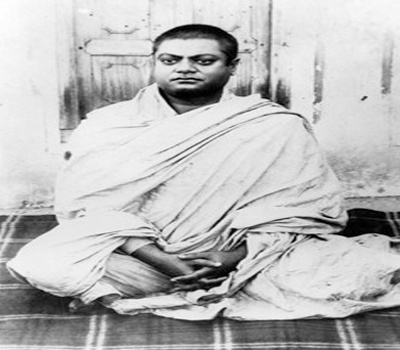
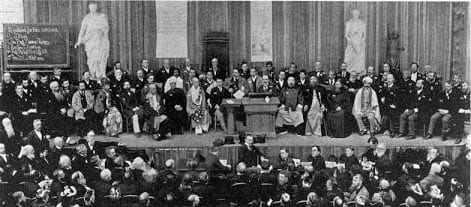
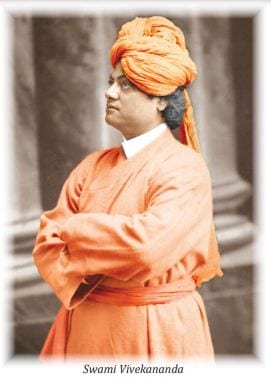

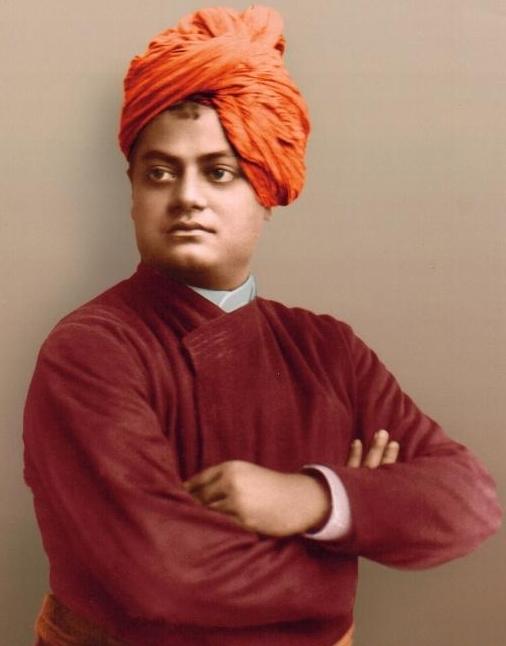
Leave A Comment